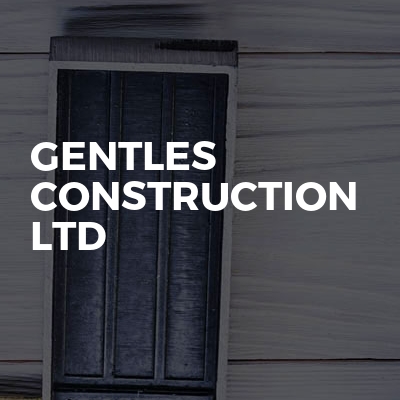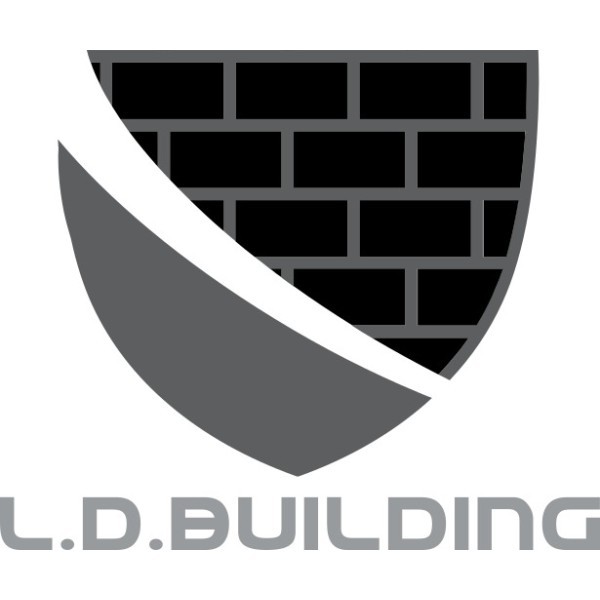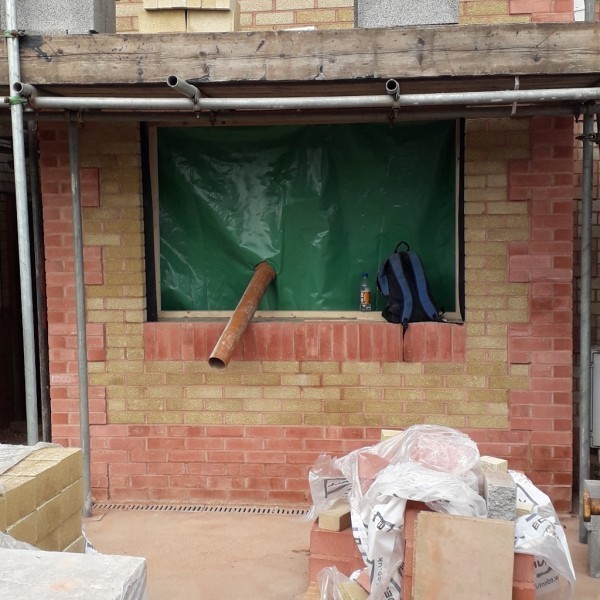Extension Builders in Blackwood/Coed Duon
Search Extension Builders in places nearby
Understanding the Role of Extension Builders in Blackwood/Coed Duon
When it comes to enhancing your home, extension builders in Blackwood/Coed Duon play a pivotal role. These professionals are skilled in transforming spaces, adding value, and improving the functionality of homes. Whether you're looking to add a new room, expand your kitchen, or create a home office, extension builders can make your vision a reality.
The Importance of Choosing the Right Extension Builder
Choosing the right extension builder is crucial for the success of your project. A reputable builder will ensure that the work is completed to a high standard, on time, and within budget. They will also help you navigate the complexities of planning permissions and building regulations, ensuring that your extension is both legal and safe.
Qualities to Look for in an Extension Builder
- Experience: Look for builders with a proven track record in similar projects.
- Reputation: Check reviews and ask for references to gauge their reliability.
- Communication: Choose someone who listens to your needs and keeps you informed.
- Transparency: Ensure they provide clear quotes and timelines.
Types of Home Extensions
There are several types of home extensions you might consider, each with its own benefits and challenges. Understanding these options can help you make an informed decision about what will work best for your home and lifestyle.
Single-Storey Extensions
Single-storey extensions are a popular choice for homeowners looking to add extra living space. They are typically used to expand kitchens, living rooms, or dining areas. These extensions can be designed to blend seamlessly with the existing structure, enhancing both the functionality and aesthetic appeal of your home.
Double-Storey Extensions
For those needing more space, a double-storey extension might be the answer. This type of extension can provide additional bedrooms, bathrooms, or even a home office. While more complex and costly than single-storey extensions, they offer significant additional space and can greatly increase the value of your property.
Wrap-Around Extensions
Wrap-around extensions combine side and rear extensions to create a large, open-plan living area. This option is ideal for those who want to maximise space and create a modern, open feel in their home. However, they require careful planning and design to ensure they complement the existing structure.
Planning and Designing Your Extension
Planning and designing your extension is a critical step in the process. It involves considering your needs, budget, and the potential impact on your home's value. Working with a skilled architect or designer can help you create a plan that meets your requirements and enhances your home's appeal.
Setting a Budget
Setting a realistic budget is essential for any home extension project. Consider all costs, including materials, labour, and any additional expenses such as planning permissions or architectural fees. It's also wise to set aside a contingency fund for unexpected costs.
Design Considerations
- Functionality: Ensure the design meets your practical needs.
- Aesthetics: The extension should complement the existing structure.
- Lighting: Consider natural light sources and how they will affect the space.
- Energy Efficiency: Incorporate energy-efficient materials and designs.
Navigating Planning Permissions and Building Regulations
Understanding planning permissions and building regulations is crucial when undertaking a home extension. These rules ensure that your extension is safe, legal, and in keeping with local planning policies.
When Do You Need Planning Permission?
Not all extensions require planning permission. However, if your extension exceeds certain size limits or alters the appearance of your home significantly, you may need to apply for permission. It's important to check with your local council to understand the specific requirements for your area.
Understanding Building Regulations
Building regulations are standards that ensure the safety and energy efficiency of buildings. They cover aspects such as structural integrity, fire safety, and insulation. Your extension builder should be familiar with these regulations and ensure that your project complies with them.
The Construction Process
The construction process for a home extension involves several stages, from initial groundwork to final finishes. Understanding these stages can help you prepare for what to expect and ensure the project runs smoothly.
Initial Groundwork and Foundations
The first stage of construction involves preparing the site and laying the foundations. This is a critical step, as strong foundations are essential for the stability and longevity of your extension.
Building the Structure
Once the foundations are in place, the main structure of the extension is built. This includes walls, roof, and any internal partitions. At this stage, it's important to ensure that the work is carried out to a high standard to avoid issues later on.
Finishing Touches
The final stage of construction involves adding the finishing touches, such as plastering, painting, and installing fixtures and fittings. This is where your extension really starts to take shape and become a functional part of your home.
Benefits of Home Extensions
Home extensions offer numerous benefits, from increased living space to enhanced property value. Understanding these benefits can help you decide whether an extension is the right choice for you.
Increased Living Space
One of the most obvious benefits of a home extension is the additional living space it provides. This can be particularly valuable for growing families or those who need extra room for hobbies or work.
Enhanced Property Value
A well-designed and executed extension can significantly increase the value of your property. This can be a major advantage if you plan to sell your home in the future.
Improved Functionality
Extensions can improve the functionality of your home by creating more usable space. This can make your home more comfortable and convenient to live in.
Common Challenges and How to Overcome Them
While home extensions offer many benefits, they can also present challenges. Being aware of these challenges and knowing how to overcome them can help ensure a successful project.
Budget Overruns
One common challenge is staying within budget. To avoid this, it's important to set a realistic budget from the outset and stick to it as closely as possible. Regularly reviewing costs and making adjustments as needed can also help keep your project on track.
Delays in Construction
Delays can occur for a variety of reasons, from bad weather to supply chain issues. To minimise the risk of delays, work with a reliable builder who has a good track record of completing projects on time.
Planning Permission Issues
Obtaining planning permission can sometimes be a lengthy and complex process. To avoid issues, ensure that you understand the requirements and submit your application well in advance of your planned start date.
Frequently Asked Questions
What is the average cost of a home extension in Blackwood/Coed Duon?
The cost of a home extension can vary widely depending on factors such as size, design, and materials. On average, you might expect to pay between £1,200 and £2,000 per square metre.
How long does it take to complete a home extension?
The timeline for a home extension can vary depending on the complexity of the project. Generally, you can expect the process to take between three and six months from start to finish.
Do I need planning permission for a small extension?
Not all small extensions require planning permission. However, it's important to check with your local council to ensure that your project complies with local regulations.
Can I live in my home during the construction of an extension?
In most cases, you can continue to live in your home during construction. However, there may be some disruption, so it's important to plan accordingly.
How can I ensure my extension is energy efficient?
To ensure your extension is energy efficient, consider using high-quality insulation, energy-efficient windows, and sustainable building materials. Your builder can provide advice on the best options for your project.
What should I do if I encounter problems during construction?
If you encounter problems during construction, communicate with your builder as soon as possible. They should be able to address any issues and find a solution to keep your project on track.
In conclusion, extension builders in Blackwood/Coed Duon offer a valuable service for homeowners looking to enhance their living space. By understanding the process and working with a reputable builder, you can create an extension that meets your needs and adds value to your home.




















